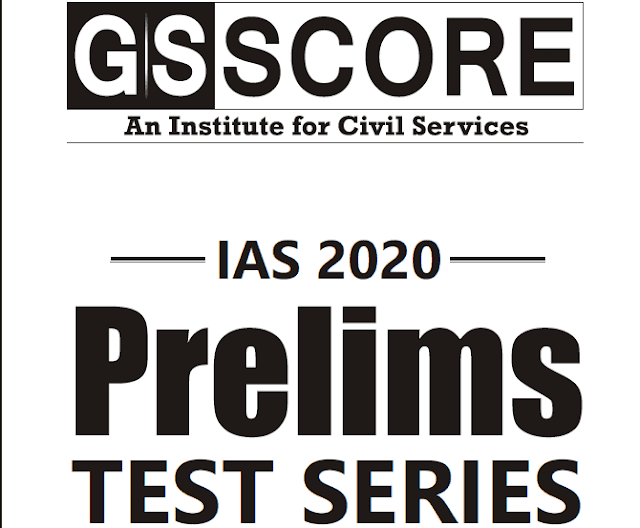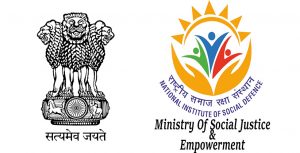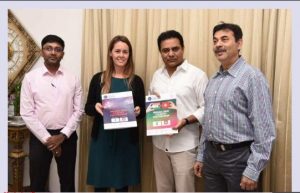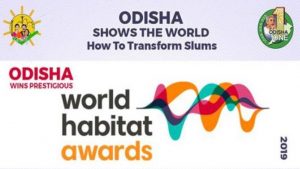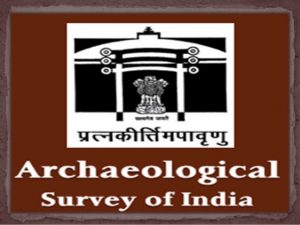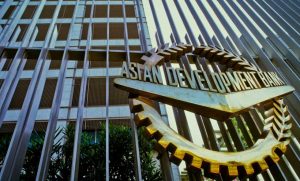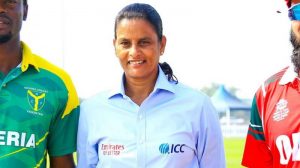VisionIAS
19:55

📰 Should the creamy layer norm be extended to SC/STs?
Reservation for Dalits is not to undo economic backwardness, but as remedy for untouchability
•The Centre has called upon the Supreme Court to constitute a seven-judge Bench to examine whether the ‘creamy layer’ concept should be applied to Scheduled Castes (SCs) and Scheduled Tribes (STs) for promotions in service. In a conversation moderated by K. Venkataramanan, Sukhadeo Thorat (former chairman, UGC, Professor Emeritus, The Centre for Study of Regional Development in the School of Social Sciences, Jawaharlal Nehru University) and Ashwini Deshpande (Professor of Economics, Ashoka University) discuss the basis for reservation and the myths associated with it. Edited excerpts:
Can you give us a perspective on the idea of applying the creamy layer concept to reservation and, in particular, to SCs and STs?
•Sukhadeo Thorat: Reservation in politics, services and institutions is given to SCs particularly because they were denied the right to property, education and industries for nearly 2,000 years. Besides they were treated as untouchables. Discrimination continues even today in society. The argument was that to provide them the safeguard [against discrimination] and compensate them to some extent for past exclusions, they should be given representation as per their population share. Because otherwise, due to persisting discrimination in services, enterprises and agriculture, they won’t get their due share.
•They continue to be landless. I think there the policy should have been reparation or compensation. That has not been done. What we are doing is simply giving some protection against discrimination in the present, and giving a share in proportion to the population. So, instead of going to the Supreme Court, the government should have set up a committee and checked whether people in service face discrimination or not. And I have a feeling that there is a huge discrimination once you get into service. There are about 12,000 cases lying with the SC/ST Commission, complaining about discrimination in service. Therefore, they need protection in promotion also.
•Ashwini Deshpande: I agree that the reason for having reservation, at the entry level and then in promotions, is to combat discrimination, which can be economic or social. But reservation is not an anti-poverty programme. The more advantageous sections of all caste groups are able to enter higher education. So, if we want to make sure that the poor are getting represented, we need a separate set of policies.
•We have to recognise that while both OBCs and SCs get reservation, the social reality under which Dalits live and the situation under which OBCs live are very different. So, I would make a case for justifying the ‘creamy layer’ exclusion from within the OBCs, because for them a lot of it is economic backwardness. And if you are rich enough to cross a certain threshold, there isn’t the kind of social discrimination that happens towards Dalits. In fact, there is an argument in the U.S. that richer Blacks face greater discrimination because the Whites resent their entry into areas that are considered privileged for the Whites. So, in a way, there is some evidence to show that discrimination actually increases with a rise in economic position. Even after Dalits get entry into jobs or higher education, there are little micro-aggressions that they face. For example, in educational institutions students complain of harassment because they came in through reservation. We need more data, but to link it with economic status is wrong.
How far do you think the test of backwardness, the adequacy of representation, and the impact of reservations on the efficiency of administration affect or do not affect the prospects of SC/ST candidates?
•Sukhadeo Thorat: The reservation policy type of affirmative action is against discrimination; it is not based on economic consideration because the discrimination is independent of your economic standing. Women are asking for reservation. Have they ever raised the issue that relatively better-off women should not get political reservation? Because they are discriminated based on gender, poor or non-poor. So, I think this clarity has to be there.
•I take the view that economic concessions should not be given. Don’t give them subsidies, scholarships, because some of them are economically better-off, but you cannot extend that argument to say that reservation should not be given to the economically better-off. So, I think the Supreme Court has to understand the point academically; I don’t think the issue is legal.
•If there is a question of limit, the limit can be modified. If promotion harms others, there are other ways of helping them. The Supreme Court should not put a legal limit on it, 50% or otherwise. Find out the alternative ways of benefiting non-SCs/STs, while retaining reservation for SCs/STs.
•Ashwini Deshpande: One more point. If you treat the unfilled vacancies as a separate unit to be filled, you actually don’t even exceed the 50%. In any case, the 50% limit is a bit arbitrary. It also has to be rethought. But even if you don’t go into that today, the point is that if you consider the unfilled vacancies as a separate unit, and not club that with upcoming vacancies, it is possible to not violate that 50%.
One more aspect is the test of backwardness. In Jarnail Singh, the court felt that the test of backwardness should not be made applicable at all to SC/STs. But at the same time it advocated the creamy layer concept to be applied. Isn’t there some contradiction here?
•Sukhadeo Thorat: Yeah, I think there is a contradiction. On the one hand, they say that no criteria or indicator should be applied of backwardness to the SCs and STs. And on the other, they are trying to apply the same economic criteria to exclude some of the relatively economically better-off SCs. And if at all the Supreme Court has to take a position, it should ask the government to set up a comprehensive committee to study the practice of untouchability and discrimination faced by SCs and STs. The court should revise its position, and see where they continue to face discrimination in all spheres of life. If a community does not face discrimination, then you can develop an anti-poverty policy for the poor. But when there is discrimination, you have a separate policy all over the world.
•Ashwini Deshpande: The point that both of us are repeating is that the reason for reservations for Dalits is not economic backwardness. It is the stigma that comes on account of the untouchable status. And even though legally untouchability has been abolished, there is a lot of data that show that people still practise untouchability. So the stigma that comes on account of an untouchable status... reservation is only a tiny remedial measure for that. This continuous clubbing together of economic backwardness and stigma because of the untouchable status is wrong. Because you can talk about economic backwardness, but for Dalits you have to address the stigma.
One argument was that while at the entry level a person is genuinely deprived, and reservation is a remedial measure, as he goes up the ladder in both income and status there may not be any need for reservation in promotions. And that the creamy concept should be applied at that level.
•Sukhadeo Thorat: We are emphasising the point that the policy of reservation or affirmative action is based on discrimination, that is denial of equal opportunity which others enjoy. And the economically better-off also face discrimination, in service and many other spheres. They also need a safeguard and that safeguard is the affirmative action policy. What I had also said is that since they are economically better-off, don’t give them economic advantages like subsidies. They can afford that but you cannot extend this argument to say reservation should be withdrawn for the better-off. There is need for reservation in promotions because they face discrimination in promotions. We don’t have studies on this. The Supreme Court and government should undertake a study.
•Reservation is sort of peanuts. The public sector accounts for a small portion of jobs. And it is there they get some share. In private, they have no protection against discrimination. What you require is compensation for 2,000 years of repression. We have to give them land, funding to start industries, and for education. So, you require a large policy of compensation, reparation, supplemented by reservation.
There is a provision in Article 335 on how affirmative action should be subject to overall efficiency. A Division Bench recently rejected the idea that reservation will have an impact on efficiency, but even then I think the view is still prevalent.
•Ashwini Deshpande: This belief that reservations affect the efficiency of public services is a complete myth. I have done a study with the Indian Railways. And that is the only long-term, big-scale study to actually empirically estimate the effect of reservations on efficiency. Reservations have no negative effect on efficiency. If anything, at the top level, they actually have a positive effect. Recently, another study came out looking at IAS officers’ performance indicators, and that study reached the same conclusion. There is another study too. The point is that this myth is so strong that people are not willing to publicise the rigorous examination of this question.
The courts insist on quantifiable data – whether it is on backwardness, on inadequacy of representation or the question of efficiency. Do you think it’s too onerous a requirement for the government to demonstrate everything through quantifiable data?
•Ashwini Deshpande: I strongly support a data-based, evidence-based approach to judging reservations. We need to have greater transparency and data-based evidence to support any claims.
•Sukhadeo Thorat: I would like to add that under the SC and ST (Prevention of Atrocities) Act and the Protection of Civil Rights Act, it is the government’s responsibility to undertake a study every five years, to bring out the nature of discrimination and untouchability faced by Dalits. The government’s SC/ST Commission report is supposed to have a separate chapter on untouchability. That report has not been brought out in the last 20 years or so. The government has also not done any study. There are quantitative techniques that will capture qualitative relationships but unfortunately such surveys have been bypassed by the NSSO.
•The reservation policy as it exists has been helpful and is a pro-poor policy. More than 60% of government employees are Class 3 or Class 4 employees and are poor and less educated. At the same time, there is massive privatisation of public sector jobs and the public sector is increasingly taking on contractual jobs for which there is no reservation. There is a need to extend reservation to the private sector as well.
•Ashwini Deshpande: We need a strong anti-discrimination framework. There are so many barriers for the oppressed to approaching the justice system that it is difficult for somebody with genuine grievances about discrimination to seek justice. There is now a greater awareness about gender discrimination and institutions are making sure they develop structures to tackle it. We need similar structures for caste discrimination in the workplace.
📰 Bangladesh Ministers call off trips
Dhaka hasn’t spelt out reasons, but MEA says ‘domestic issues’
•Bangladesh on Thursday cancelled the scheduled India visits by its Foreign Minister A.K. Abdul Momin and Home Minister Asaduzzaman Khan, diplomatic sources said.
•Dhaka has not yet given a reason, but it is understood that it is a sign of its displeasure over repeated reference by the Indian political leadership to alleged minority persecution in Bangladesh.
•Mr. Momin was supposed land on Thursday on a three-day visit from December 12 to 14. He is one of the first foreign leaders to respond to Union Home Minister Amit Shah’s reference to “atrocities” against Hindu women in Bangladesh, while introducing the Bill in the Lok Sabha.
•“There are very few countries where communal harmony is as good as in Bangladesh. If he [Amit Shah] stayed in Bangladesh for a few months, he would see exemplary communal harmony,” Mr. Momin said.
‘No persecution’
•He told the Bengali service of BBC that religious persecution did not exist in Bangladesh. “We believe that religion is a personal affair, but festivals belong to all.”
•Mr. Momin, who should have been the keynote speaker at Friday’s combined session of Delhi Dialogue XI and Indian Ocean Dialogue VI, said: “We can say that the condition of the minority communities in Bangladesh is very good now. Those who went abroad earlier are now returning home.”
•Mr. Asaduzzaman Khan was expected to attend an event in Shillong on Friday to pay tribute to the sacrifice of the guerrillas of Mukti Bahini who assisted India in the war against Pakistan in 1971.
•It is learnt that Dhaka was concerned about the law and order situation in Meghalaya, where protests were reported following the passing of the Citizenship (Amendment) Bill, 2019, in Parliament.
•Ministry of External Affairs spokesperson Raveesh Kumar maintained that Dhaka had conveyed that its Ministers cancelled their India visit because of “domestic issues pertaining to the commemoration of the ‘Victory Day’ in Bangladesh on December 16”.
📰 Not many lessons learnt from water planning failures
In the absence of scientific planning and implementation, measures like Jal Shakti Abhiyan may not be successful
•Following the massive water crisis across India in the summer of 2019, the Central government hurriedly launched the Jal Shakti Abhiyan (JSA), a time-bound, mission-mode water conservation campaign to be carried out in two phases, across the 255 districts having critical and over-exploited groundwater levels. This campaign, however, was not intended to be a funding programme and did not create any new intervention on its own. It only aimed to make water conservation a ‘people’s movement’ through ongoing schemes like the MGNREGA and other government programmes.
•The JSA is partly modelled and driven by some sporadic success stories such as NGO Tarun Bharat Sangh’s experiment in Alwar, Rajasthan and Anna Hazare-led efforts in Ralegan Siddhi, Maharashtra. These projects primarily involved building tanks and ponds to capture rainwater and building recharge wells to recharge groundwater. However, it is unclear whether they were based on reference to watershed management or groundwater prospect maps.
Planning scientifically
•Water planning should be based on hydrological units, namely river basins. And, political and administrative boundaries of districts rarely coincide with the hydrological boundaries or aquifer boundaries. However, contrary to this principle of water management, JSA was planned based on the boundary of the districts, and to be carried out under the overall supervision of a bureaucrat. This resulted in the division of basins/aquifers into multiple units that followed multiple policies. There was no data on basin-wise rainfall, no analysis of run-off and groundwater maps were rarely used. As a result, one never came to know whether water harvested in a pond in a district was at the cost of water in adjoining districts.
•The JSA also fundamentally ignored the fact that most of India’s water-stressed basins, particularly those in the peninsular regions, are facing closure, with the demand exceeding supply. Hence, groundwater recharge happened at the cost of surface water and vice versa. This is where an absence of autonomous and knowledge-intensive river-basin organisations is acutely felt.
•As on date, the JSA’s portal displays impressive data, images and statistics. For example, it claims that there are around 10 million ongoing and completed water conservation structures; 7.6 million recharge structures. The website also says that one billion saplings have been planted and that six million people participated in awareness campaigns. But, data and statistics can deceive or lie, as claimed by journalist Darrel Huff in his 1954 book How to Lie with Statistics.
•For example, the data displayed on JSA portal do not speak anything about the pre-JSA water levels, the monthly water levels and impact of monsoon on the water levels across the 255 districts with critical and over-exploited blocks. They also don’t convey anything about the quality of the structures, their maintenance and sustainability. Even if the water levels had been measured, it is unknown whether the measurement was accurate. Many such queries remain unanswered and hidden behind these data and statistics. The results for a 2016 study conducted by the Central Groundwater Board showed that water levels always increase post-monsoon. Therefore, it will require long-term monitoring of water level data to determine the actual impact of a measure like JSA. At present, there is no such parameter to measure the outcome of such a mission-mode campaign. The rat race among districts for ranking has turned out to be meaningless.
Facile assumptions
•True, the aim and intent of JSA are noble. But the assumptions are distorted. For example, it assumes that common people in rural areas are ignorant and prone to wasting water; on the contrary, they are the ones who first bear the brunt of any water crisis. The per capita water allocation to those living in rural areas is 55 litres, whereas the same for urban areas like Delhi and Bengaluru is 135-150 litres.
•Therefore, the JSA’s move to reach out to poor people and farmers, asking them to ‘save water’, appears hypocritical, particularly when district administrations blatantly allow the sewage generated from towns and cities to pollute village water sources such as tanks, ponds and wells.
•Moreover, it is difficult to say whether measures like JSA can provide long-term solutions. Most of the farm bunds built with soil can collapse within one monsoon season due to rains and/or trespassing by farm vehicles, animals and humans. Further, there are issues like lack of proper engineering supervision of these structures, involvement of multiple departments with less or no coordination, and limited funding under MGNERGA and other schemes. Finally, there have hardly been many efforts undertaken to dissuade farmers from growing water-intensive crops such as paddy, sugarcane, and banana, when it is widely known that agriculture consumes 80% of freshwater.
•The summer water crisis has not led to our policymakers learning many lessons, and the country just seems to have returned to a business-as-usual situation.

